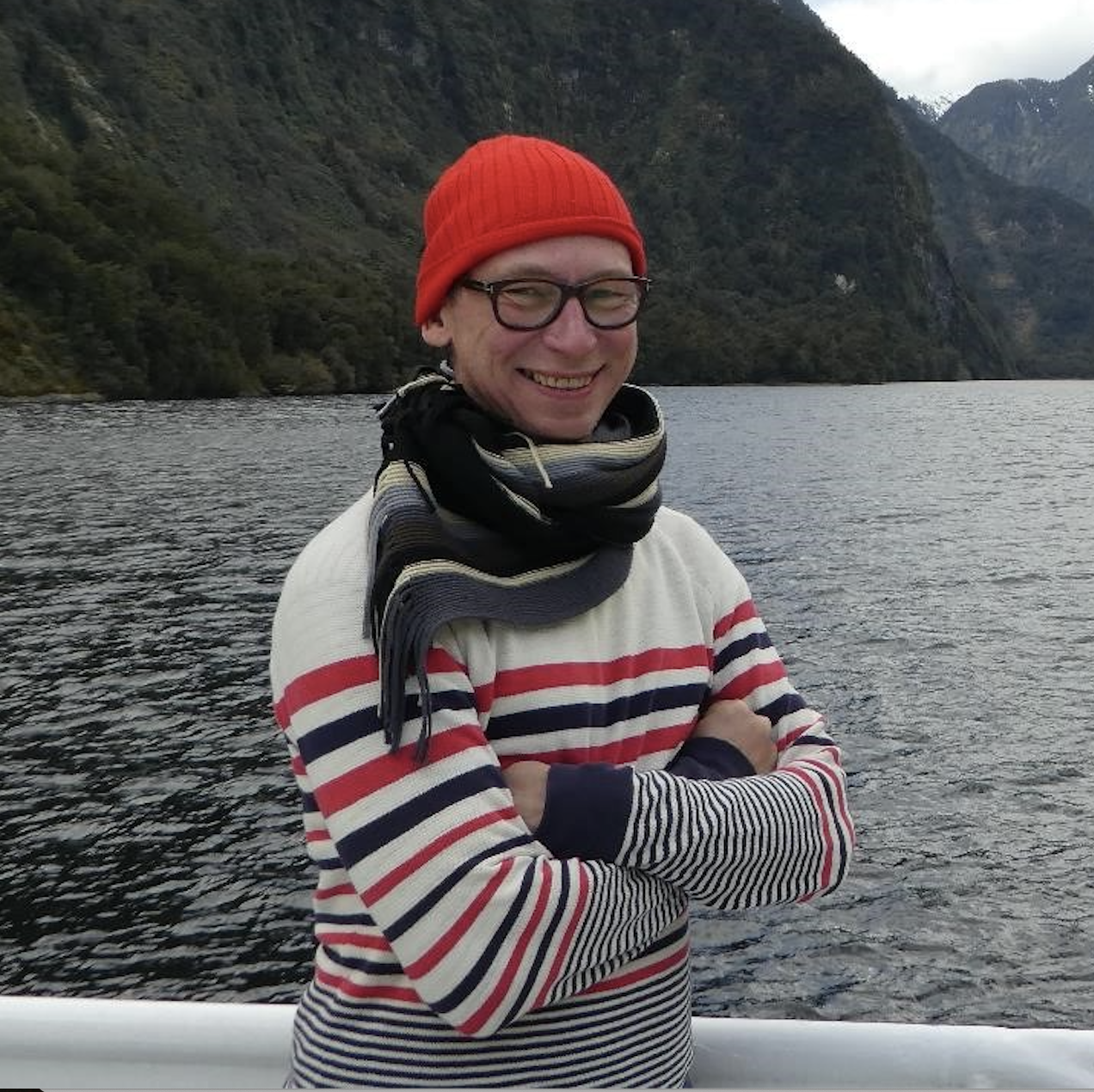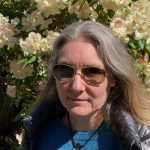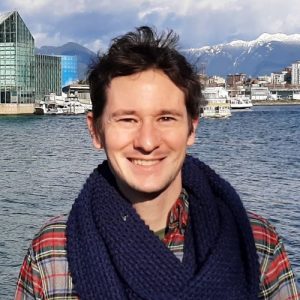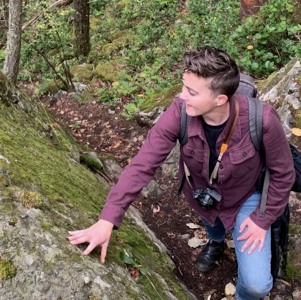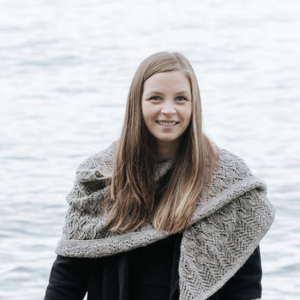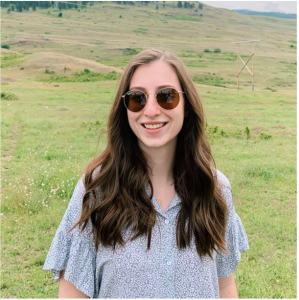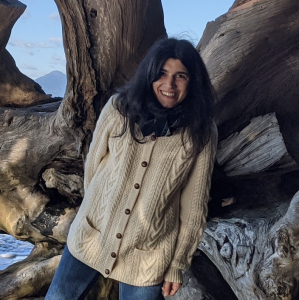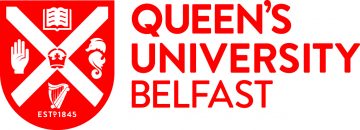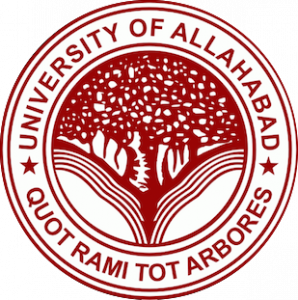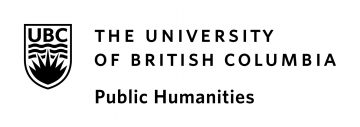
Photos by Louise Taylor
The digital conference “Un/Predictable Environments: Politics, Ecology, Agency” would not be possible without the wonderful support of the following institutions and individuals. We are very grateful for the dedication of those who contributed so much to this event’s success.
Conference Organizers
Queen’s University Belfast |
||
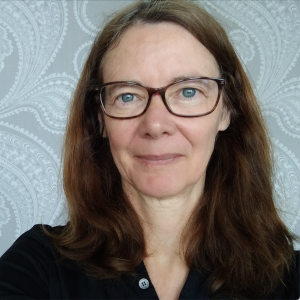 |
Maruška Svašek Maruška Svašek is Reader in Anthropology at Queens University Belfast, UK. Her main research explores the agency, mobility and affective relatedness of people, things and places in an era of intensifying globalization and transnational connectivity. Her most current work investigates the engagement of artists with environmental concerns, and develops the conceptual focus of un/predictability and improvisation. Her publications include Ethnographies of Movement, Sociality and Space (2018, with Milena Komarova), Creativity in Transition (2016, with Birgit Meyer), Emotions and Human Mobility (2012), Moving Subjects, Moving Objects (2012), Anthropology, Art and Cultural Production (2007), Postsocialism(2006) and Mixed Emotions (2005, with Kay Milton).
|
|
|
|
John Barry John Barry is father, a recovering politician, Professor of Green Political Economy and Co-Director of the Centre for Sustainability, Equality and Climate Action at Queens University Belfast. He is also co-chair of the Belfast Climate Commission. What keeps him awake at night is the life opportunities and future wellbeing of his children. His areas of academic research include post-growth and heterodox political economy; the politics, policy and political economy of climate breakdown and climate resilience; and socio-technical analyses of low carbon energy transitions. His latest book is The Politics of Actually Existing Unsustainability: Human Flourishing in a Climate-Changed, Carbon-Constrained World(Oxford University Press). Since January 2020 is co-chair of the Belfast Climate Commission, and was a Green Party councillor from 2011-2018 on Ards and North Down council.
|
|
|
|
Tom Marshall Tom is a PhD candidate at Queen’s University, Belfast. Tom’s research explores the impact of the COVID-19 pandemic on qualitative researchers and their research in the UK and Republic of Ireland. His previous research plan, Eastern Europeans and NHS services was halted due to the pandemic. Having trained as a nurse and worked with a small-scale community project in India, his academic interests are health, migration, and social/ structural suffering. Tom completed his master’s thesis on the theme of affective place-making among Belfast’s Hindu communities. He is also an Associate Editor for the Irish Journal of Anthropology, and co-editor of its newsletter, EthnoGraph.
|
|
 |
Louise Taylor Louise Taylor is a mother of two, a pet person for three (two dogs and one cat), an ecotherapist and an environmental and political activist. She is based in rural Northern Ireland and is currently doing a research PhD on the relationship between Nature and Mental Health with the Department of History, Anthropology, Philosophy and Politics at Queens University Belfast. Louise is interested in Nature as a therapeutic intervention and device, Ecopsychology, Ecofeminism, Environmentalism and Consciousness and Neurodiversity. She is the founder of Rewild NI and is currently a blogger for Psychology Today where she writes about her experiences as a late diagnosed autistic woman and therapist.
|
|
 |
Niamh Small Niamh Small is a PhD candidate in Anthropology in the school of History, Anthropology, Philosophy and Politics as Queen’s University Belfast. Her research aims to identify the negotiation of polarised public spaces by alternative political groups such as Environmental activists, who do not conform to the boundaries of ethno-nationalist politics which are dominant in Northern Ireland. Niamh is interested in themes of symbolic manifestation and representation, politics of hope and the peacebuilding capacities of social movements. She has completed ethnographic fieldwork in both her native Northern Ireland and in Japan, investigating themes of cultural representation and contested symbolic landscapes.
|
|
University of Allahabad |
||
 |
Prashant Khattri Prashant Khattri is Assistant Professor in the Department of Anthropology, University of Allahabad, Prayagraj, UP, India. He researches on Social Impacts of Disasters, Livelihood Issues in Disaster Context, and people’s movements in environmental crisis. Broadly his research interests fall within the domains of environmental anthropology and medical anthropology. He has more than 10 years of teaching experience and published research works in reputed journals. More recently he is working on Gandhian Ideas related to Environment and Health as a theoretical paradigm to understand ethnographic realities. He is Charles Wallace Fellow in Social Anthropology at Queen’s University, Belfast and Deputy Director, UGC-Human Resource Development Center, University of Allahabad. Some of his articles can be accessed on the following weblinks: https://www.epw.in/system/files/pdf/2015_50/10/Biomedicalisation_and_Gandhis_Vision_of_Health.pdf https://journals.sagepub.com/doi/10.1177/2277436X20170104?icid=int.sj-abstract.similar-articles.2 https://journals.sagepub.com/doi/abs/10.1177/2277436X19881247 https://www.jstor.org/stable/26494029?refreqid=excelsior%3A093f759e38f1e6a9debc33f211c1a343
|
|
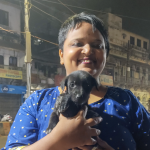 |
Toshi Pandey I am Toshi, identify as exhausted brown queer. (She/they)
I am working on HIV/Aids and alternative medical system. In this study I am just trying to understand people’s stand point for using/seeking any kind of alternative medical care. Also trying to explore the narrative of bio power and bio medical supremacy.
|
|
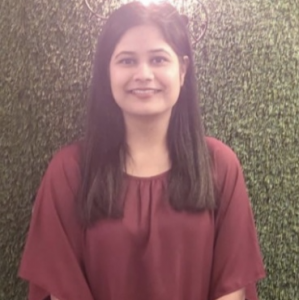 |
Deepshikha Upadhyay My name is Deepshikha Upadhyay and I am a masters student at the Department of Anthropology, University of Allahabad in Uttar Pradesh in India. I am very much inclined in the areas of biocultural studies, ecofeminism, disaster studies. |
|
University of British Columbia |
||
|
|
Tracey Heatherington Tracey Heatherington is Associate Professor of Anthropology at the University of British Columbia. She examines the political ecology of biodiversity conservation, and the global imaginaries associated with Anthropocene environments and other un/predictable circumstances. Her current research examines diverse cultural projects of seed banking and seed saving, including the envisioned role of agricultural science, technology and institutions in international efforts to adapt to climate change. Multi-sited fieldwork has taken her to the Svalbard Global Seed Vault in Norway, the Global Crop Diversity Trust at the UN Sustainability Hub in Germany, and the Iowa-based Seed Savers Exchange nonprofit organization. She serves as co-editor for the book series, Critical Green Engagements: Investigating the Green Economy and its Alternatives, at the University of Arizona Press.
|
|
|
|
Jonathan Eaton Jonathan Eaton is a PhD candidate in the Department of Anthropology at the University of British Columbia. His research seeks to understand the affective connections among people, heritage, and hazards within the multilayered temporalities of disaster planning in Vancouver. He asks how a bit of care and cultivation of place can help people preserve what they value in the face of the unpredictability of earthquakes in this region. Jonathan’s experience as a Fulbright scholar and heritage practitioner in Albania with the organization Cultural Heritage without Borders taught him to appreciate the importance of everyday moments connecting people and place.
|
|
|
|
Kendra Jewell Kendra Jewell (they/them, she/her) is a queer white settler and PhD Candidate in Anthropology at UBC, working with Dr. Shaylih Muehlmann. Their research looks at climate change impacts in coastal Florida, and interrogates the connections between whiteness, coloniality, and climate change denial (in all its forms). In their spare time they like to garden, brew beer, take photos, and write creative non-fiction.
|
|
|
|
Sarah Raven Sarah is a mother of two, a “maker” and a master’s student in the Department of Anthropology at the University of British Columbia. Her research focuses on community engagement, environmental sustainability, and socially ethical business practices via a case study of a Vancouver-based textile organization. This study looks at the development, growth, and shared values of a local fibre arts community within and through this organization and its various business endeavours.
|
|
|
|
Jordanna Marshall Jordanna is a master’s student in the Department of Anthropology at the University of British Columbia. Her research on biodiversity conservation explores the interface of nature and culture among conservation practitioners in the Okanagan, B.C. to question how they understand and relate to the natural world. Jordanna’s concern towards B.C.’s drastically changing landscape, as the result of climate change, development, and land use changes, drives her anthropological research and practice. |
|
|
|
Garance Thery Garance Thery is a fourth-year student at the University of British Columbia, where she is pursuing a degree in Socio-Cultural Anthropology and a minor in Critical Studies in Sexuality. In her studies, she particularly focused on the shaping and regulation of gendered, racial, and ethnic subjectivities under the dominant sociopolitical values, discourses, and practices of secularism and universal citizenry in France. For the past two years, she has been working as both a project and teaching assistance alongside professors at UBC, providing her the opportunity to develop her interest and broaden her understanding on the construction and categorization of gendered and racialized bodies in different sociopolitical ad cultural landscapes. These experiences have further allowed her to work with scholars in various fields, and notably revealed her enthusiasm for tutoring and education. Upon completion of her undergraduate studies, she intends to apply to graduate school to further her knowledge and interest on the intersection gender, French secularism, and Islam. |
|
|
|
Conference Mascot
|
|
 |
Darcy Marshall My name is Darcy and I made myself the official mascot for the Un/Predictable Environments conference. I might pop onto Tom’s lap to say ‘whoof’ during the panels. Tom Marshall is my ‘dad’. I saw him through his MA and now I’m helping him with his PhD. I like to get him out, away from his desk. Being with nature, the beach or the forest is good for his well-being. Apart from looking cute, my main tasks are looking after Tom and getting myself noticed around the world during his online meetings. And, I sniff everything – it could be a treat. |
Acknowledgments
The organizers in Vancouver appreciate that we are guests upon the traditional, ancestral, and unceded territory of the Musqueam people. Long before the University of British Columbia was founded, this land was already a place of learning for the Musqueam, who for millennia have passed on their culture, history, and traditions from one generation to the next on this site.
The organizers extend a heartfelt ‘Thank you!’ to the brilliant team at UBC Public Humanities Hub (PHH), who greatly supported the grant proposal, website, logistics, and promotion of the conference, especially:
Mary Chapman, Academic Director of PHH and Professor of English
Heather Joan Tam, Senior Program Assistant at PHH
Gillian Glass, Graduate Academic Assistant, PHH and PhD Student, Religious Studies
Sydney Lines, Graduate Academic Assistant, PHH and PhD Student, English
Heidi Rennert, Graduate Academic Assistant at PHH and PhD Candidate in English and STS
University Partners and Sponsors
This conference is supported in part by funding from the Social Sciences and Humanities Research Council.


